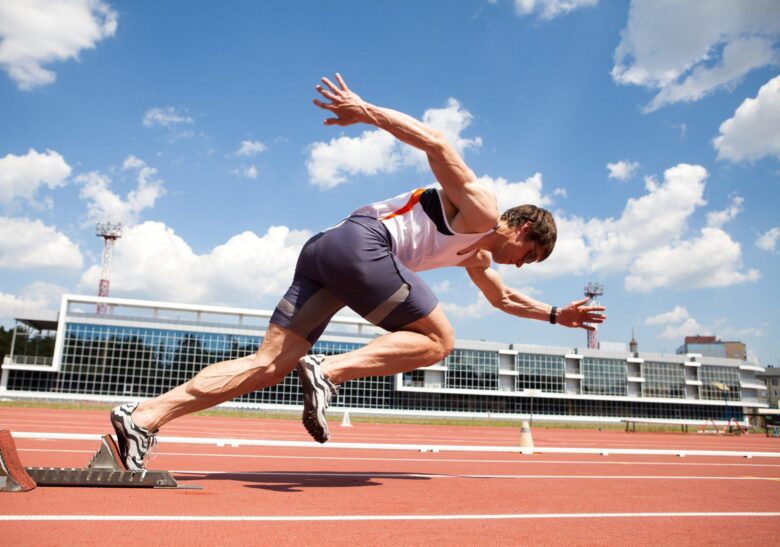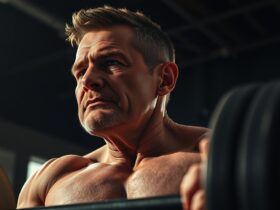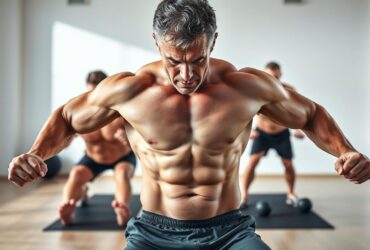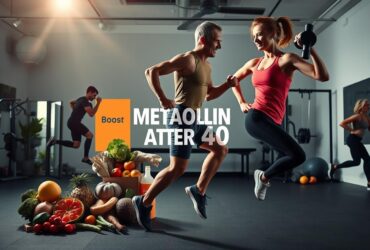In the world of sports and fitness, the pursuit of peak performance is a relentless endeavor, drawing athletes into a labyrinth of training regimens, diet plans, and increasingly, complex hormonal discussions. Among these discussions, testosterone therapy has emerged as a polarizing topic that straddles the line between enhancement and ethics. Once synonymous with the realm of bodybuilding and elite athletes, testosterone’s role has now expanded into mainstream conversations about health, vitality, and competitive advantage. This article explores the intriguing intersection of testosterone therapy and athletic performance, examining the science behind hormone regulation, the potential benefits and risks, and the ethical implications that come with its use. As the sports landscape evolves, understanding the place of testosterone therapy within the athletic community becomes not just important, but essential for athletes, trainers, and enthusiasts alike.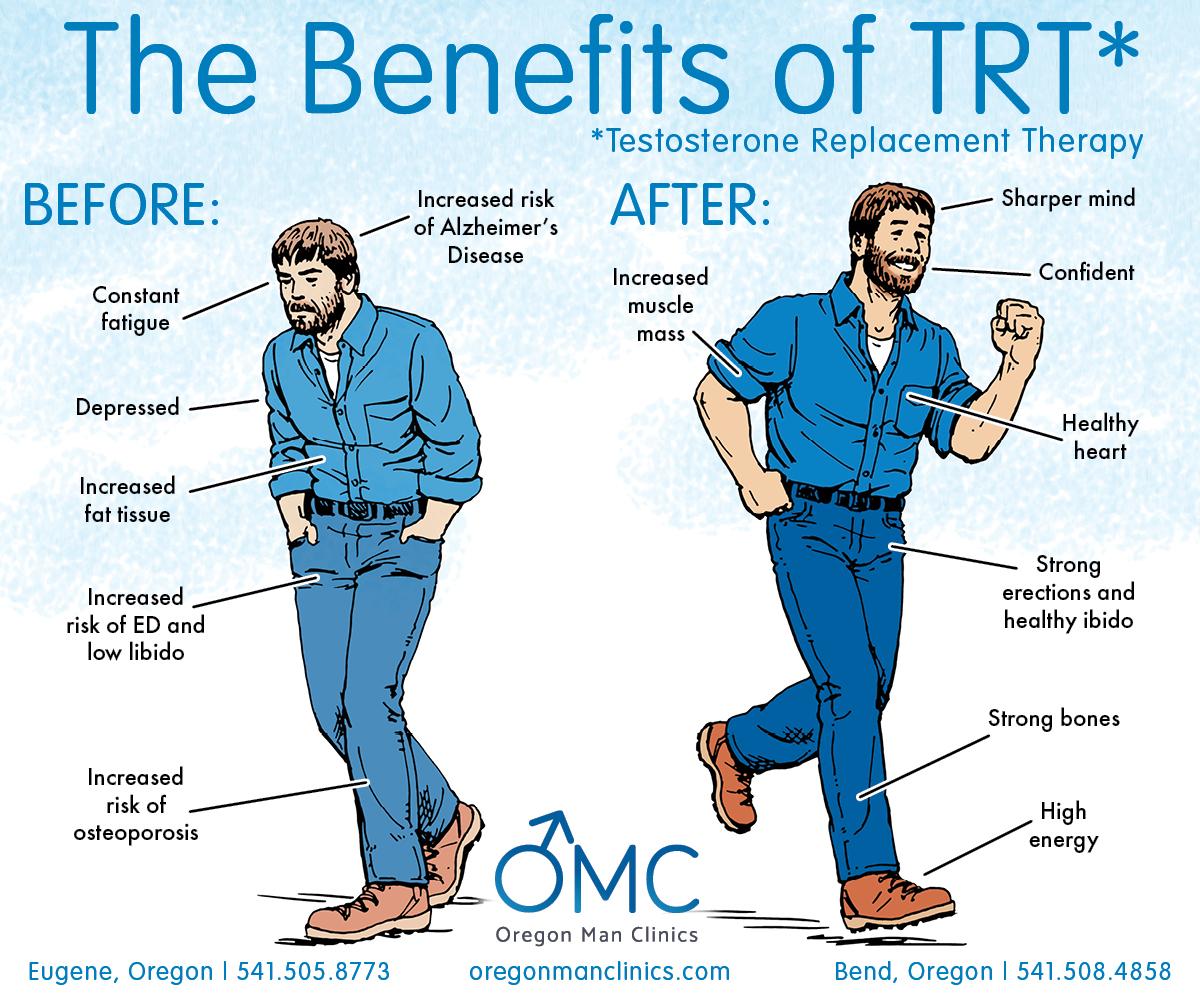
The Science Behind Testosterone and Athletic Performance
Testosterone plays a pivotal role in muscle development, recovery, and overall athletic capability. This hormone, primarily produced in the testicles and to a lesser extent in the ovaries and adrenal glands, influences various physiological processes that are critical for performance. Athletes often seek ways to enhance their testosterone levels to gain a competitive edge. Research demonstrates that higher testosterone levels correlate with increased muscle mass, strength gains, and improved body composition. Specifically, it promotes protein synthesis and supports the anabolic processes vital for effective training adaptations.
Moreover, the impact of testosterone extends beyond just muscle improvement; it also enhances motivation and mental resilience. By facilitating increased energy levels and reducing fatigue, a well-managed testosterone therapy program can enable athletes to train harder and recover faster. Some key benefits include:
- Enhanced muscle strength and endurance
- Accelerated recovery from strenuous exercise
- Improved mood, which can bolster performance
- Increased aerobic capacity
However, the implementation of testosterone therapy raises important ethical and health considerations, especially in competitive sports. Professional bodies have established strict regulations regarding hormone replacement therapy to ensure fair play. The table below summarizes these guidelines:
| Organization | Testosterone Limit (ng/dL) | Regulations |
|---|---|---|
| WADA | 1000 | Strictly prohibits use without a therapeutic exemption |
| Olympics | 150 | Testing is mandatory; violations lead to disqualification |
| NFL | 1000 | Players must undergo testing; penalties for violations |
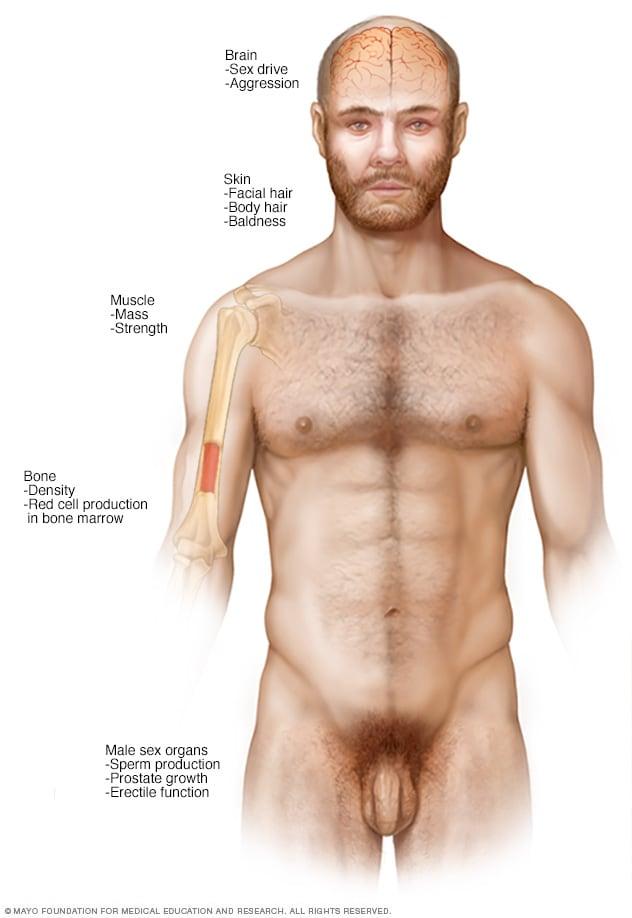
Understanding the Role of Testosterone in Muscle Building
Testosterone plays a crucial role in muscle hypertrophy, the process by which muscles increase in size and strength. This powerful hormone influences various biological pathways that enhance protein synthesis, promote fat loss, and improve energy levels, all of which are essential for effective strength training. Notably, testosterone contributes to muscle fiber development by stimulating satellite cells, the precursors to muscle cells that facilitate recovery and growth. For athletes aiming to optimize their performance, understanding the balance of testosterone is vital to maximizing their training outcomes.
When athletes consider testosterone therapy, they often seek to leverage its benefits for enhanced athletic performance. Some potential advantages include:
- Increased Muscle Mass: Higher testosterone levels can contribute to significant gains in lean muscle.
- Enhanced Recovery: Improved recovery times can allow for more intense and frequent training sessions.
- Boosted Endurance: Testosterone can help improve overall stamina, making longer training sessions more manageable.
However, it is essential to approach testosterone therapy with caution, as it may have risks and side effects that could outweigh the benefits. Athletes should consult with medical professionals to ensure that their hormonal levels are being managed safely and effectively.
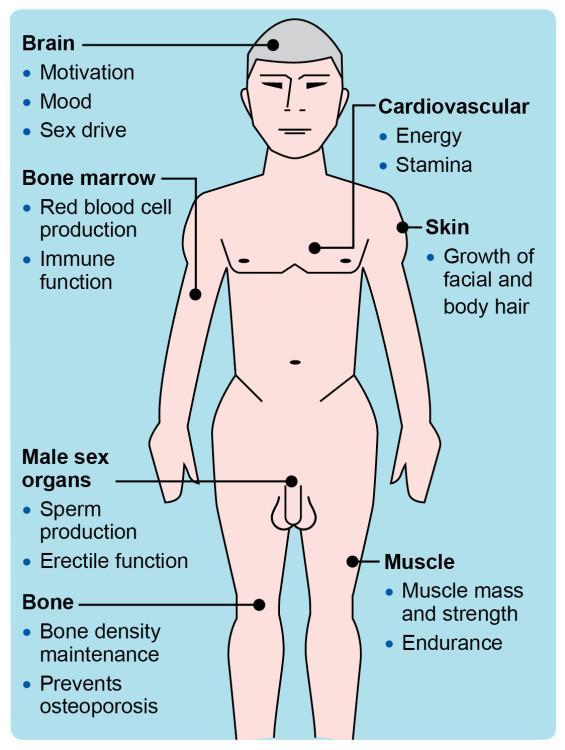
Exploring the Benefits and Risks of Testosterone Therapy
Testosterone therapy has garnered significant attention in the world of athletics, largely due to its potential to enhance physical performance. Benefits often cited include increased muscle mass, improved strength, and enhanced recovery times. Athletes may experience greater endurance levels, allowing them to train harder and longer. Additionally, elevated testosterone can lead to improved mood and motivation, which may contribute to superior training outcomes. The prospect of these enhancements creates a compelling argument for many in competitive sports.
However, the use of testosterone therapy carries inherent risks that must not be overlooked. Potential side effects can include hormonal imbalances, increased aggression, and cardiovascular complications. Athletes may also face the danger of developing dependency on the therapy, which can lead to a cycle of misuse. Furthermore, the ethical implications and legality surrounding the use of testosterone in sports raise questions about fairness and the integrity of competition. Understanding the balance between advantage and risk is crucial for anyone considering testosterone therapy for athletic enhancement.
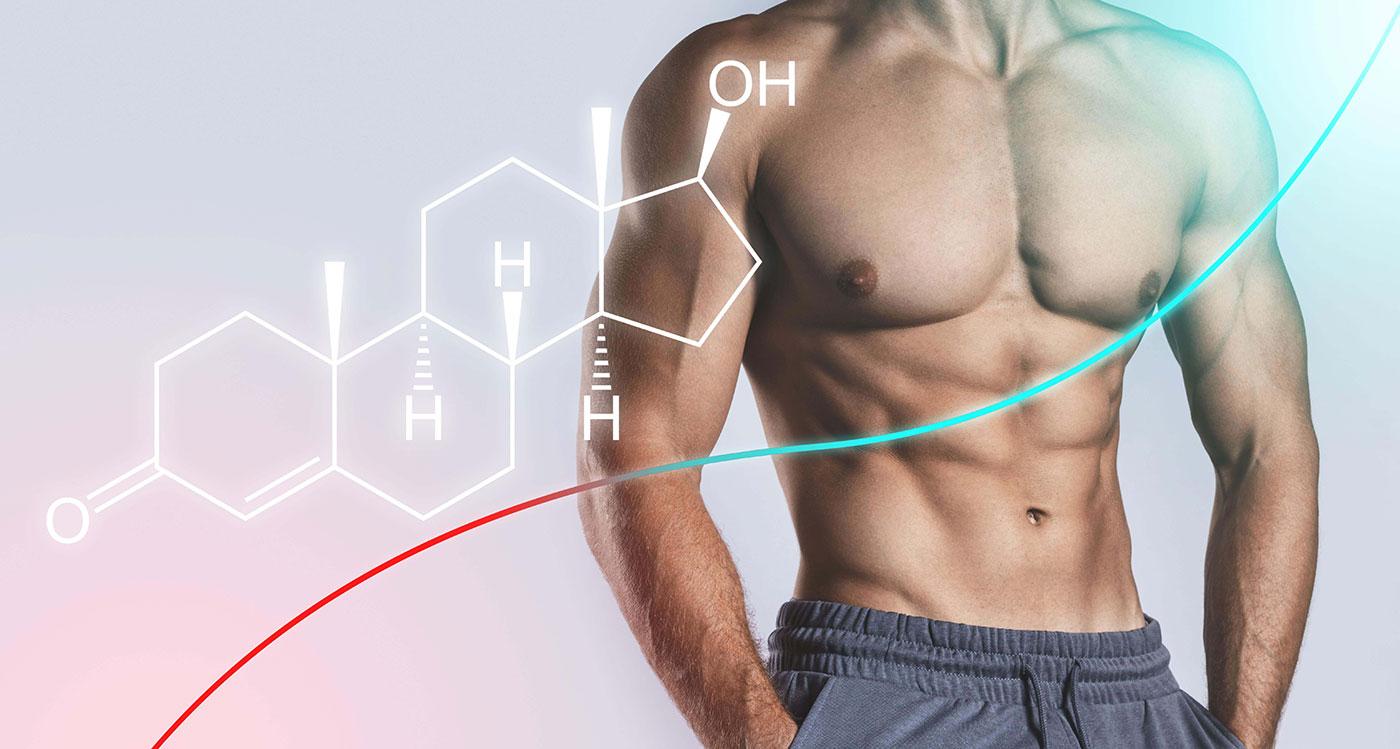
Determining Eligibility: Who Should Consider Testosterone Therapy
Individuals considering testosterone therapy for enhancing athletic performance should first assess their hormonal levels. Individuals who may benefit from this treatment typically include:
- Athletes aged 30 and above: As age advances, testosterone levels naturally decline, which can impact performance.
- Those experiencing symptoms: Symptoms such as fatigue, reduced strength, and mood fluctuations may indicate low testosterone levels.
- Competitors in high-performance sports: Athletes looking to improve their physical capabilities may see potential gains from regulated therapy.
Eligibility is often determined through a combination of medical evaluations and hormone testing. Key factors that should be considered include:
| Factor | Consideration |
|---|---|
| Age | Affects natural testosterone production |
| Medical History | Prior conditions may contraindicate therapy |
| Results of Hormone Testing | Confirm levels of testosterone in the body |
Consulting a healthcare professional is essential to determine individual suitability for testosterone therapy, ensuring one can safely pursue their athletic ambitions while promoting overall well-being.
Customization of Treatment Plans for Optimal Results
When considering testosterone therapy to enhance athletic performance, it’s essential to tailor the approach to the individual athlete. Each person’s physiology, fitness level, and specific goals play a crucial role in determining the most effective treatment strategy. A thorough assessment should include factors such as age, body composition, training regimen, and health history. By conducting comprehensive evaluations, healthcare providers can create personalized treatment plans that maximize benefits while minimizing potential risks. This customization ensures that athletes achieve optimal hormone levels that align with their performance objectives.
To further refine treatment plans, collaboration between athletes and medical professionals is vital. Regular monitoring and adjustments can help in understanding how testosterone therapy impacts performance and recovery. Consider integrating the following practices into the customization process:
- Regular Blood Tests: Monitor testosterone levels and other key biomarkers.
- Adjust Dosage: Tailor the dosage based on individual response and performance metrics.
- Track Progress: Keep detailed records of training outcomes, recovery times, and overall well-being.
- Incorporate Feedback: Actively discuss any side effects or changes to health with a healthcare provider.
Monitoring and Adjusting Testosterone Levels for Performance Gains
To optimize athletic performance through testosterone therapy, consistent monitoring of hormone levels is essential. Athletes should work closely with healthcare professionals to conduct regular blood tests, ensuring that testosterone levels remain within the desired range. This approach allows for timely adjustments to therapy based on the individual’s response to treatment. Key factors to evaluate include:
- Baseline testosterone levels: Understanding where an athlete starts helps tailor an effective treatment plan.
- Performance metrics: Monitoring physical performance can indicate whether adjustments are necessary.
- Side effects: Regular check-ins ensure that any potential side effects are managed promptly.
Adjustments to testosterone therapy might be required based on the findings from these evaluations. The objective is to enhance the athlete’s physiological capabilities without crossing into unsafe territories that could lead to health complications. Adjusting dosages, exploring different administration methods, or integrating supplementary strategies can be vital. A clear plan for adjustments can be outlined in a table:
| Adjustment Method | Purpose | Frequency of Review |
|---|---|---|
| Dosage Change | To maintain optimal testosterone levels | Every 6-8 weeks |
| Delivery Method Shift | To enhance absorption and efficacy | As needed |
| Performance Assessment | To gauge improvement and adjust therapy | Monthly |
The Ethical Implications of Testosterone Use in Sports
The use of testosterone therapy in sports raises significant ethical questions that transcend individual athletes and ripple through the entire sporting community. At its core, the debate hinges on fairness and integrity. Athletes who use testosterone to enhance their performance may possess an unfair advantage over those who do not, challenging the principles of equal opportunity and level playing fields that are foundational to sportsmanship. This situation poses several dilemmas, including:
- Health Risks: Athletes may jeopardize their long-term health in pursuit of short-term gains.
- Impact on Young Athletes: Aspiring athletes may be pressured to use these substances to compete effectively.
- Pressure on Coaches: Coaches might feel compelled to endorse or overlook the use of performance-enhancing methods.
Moreover, the normalization of testosterone use in competitive sports can encourage a culture where athletes are less concerned about the ethical implications of their choices. This potential shift could lead to a slippery slope, where the boundaries of acceptable practices blur. To better understand these complexities, consider the following table that summarizes the key ethical concerns related to testosterone use in sports:
| Ethical Concern | Description |
|---|---|
| Fairness | Compromises the principle of equal competition. |
| Health Effects | Potential long-term health consequences. |
| Role Model Effect | Influences the behavior of young athletes. |
| Regulatory Challenges | Difficulty in enforcing consistent doping policies. |
Q&A
Q: What is testosterone therapy, and how is it used in the context of athletic performance?
A: Testosterone therapy involves administering synthetic testosterone to enhance an individual’s testosterone levels. In the realm of athletics, some athletes utilize this therapy to potentially improve strength, endurance, and overall performance. However, the primary goal is often to restore testosterone levels to a normal range, particularly for those with medically diagnosed low testosterone levels, rather than to enhance athletic prowess artificially.
Q: Are there different forms of testosterone therapy available for athletes?
A: Yes, testosterone therapy can come in several forms, including injections, patches, gels, and pellets. Each form has its own advantages and disadvantages regarding dosage control, absorption rate, and duration of effect. Athletes must consult with medical professionals to determine which method might be most appropriate for their individual needs.
Q: Is testosterone therapy safe for athletes, and are there any potential side effects?
A: While testosterone therapy can be safe when prescribed by a medical professional, it is not without risks. Potential side effects include mood swings, increased aggression, acne, sleep apnea, and cardiovascular issues. Some athletes might also experience infertility or other hormonal imbalances. Monitoring by a healthcare provider is crucial to managing these risks effectively.
Q: How does testosterone therapy affect performance, and is there scientific support for its use?
A: Some studies suggest that testosterone therapy can lead to increases in muscle mass, strength, and possibly endurance. However, the extent of these benefits can vary widely among individuals. While there is some scientific support for the performance-enhancing effects of testosterone, the overall consensus remains cautious, emphasizing the importance of balancing potential benefits against health risks.
Q: Is testosterone therapy legal in competitive sports?
A: No, testosterone therapy is prohibited in many competitive sports, as publicized by organizations like the World Anti-Doping Agency (WADA). Athletes can face significant penalties for testing positive for testosterone or its synthetic derivatives. Regulatory bodies often classify the use of testosterone for performance enhancement as doping, reinforcing the need for athletes to adhere to ethical standards in sports.
Q: Can natural ways increase testosterone levels for athletes?
A: Absolutely! Athletes seeking to enhance their testosterone levels naturally can focus on various lifestyle changes. This includes regular strength training, maintaining a balanced diet rich in nutrients, managing stress levels, and ensuring adequate sleep. Certain activities, such as high-intensity interval training, have also been shown to boost testosterone levels without the need for therapy.
Q: Who should consider testosterone therapy, and what precautions should they take?
A: Testosterone therapy is generally reserved for individuals with clinically diagnosed low testosterone levels, often referred to as hypogonadism. It is vital for anyone considering this therapy to undergo comprehensive testing and discuss potential risks with a qualified healthcare provider. Regular monitoring is crucial to track hormone levels and adjust treatment as necessary, ensuring the best outcomes while minimizing risks.
Q: What is the key takeaway for athletes regarding testosterone therapy?
A: The key takeaway for athletes is to prioritize health and balance over performance enhancement through artificial means. Testosterone therapy can be a valid treatment option for those in need but should be approached with caution and responsibility. Athletes should focus on optimizing their training and nutrition before turning to any hormonal interventions, ensuring they remain competitive and healthy in the long run.
Key Takeaways
In the pursuit of peak athletic performance, the conversation surrounding testosterone therapy continues to evolve. As science unveils more about the intricate dance of hormones and their influence on physical prowess, athletes and coaches must tread carefully, balancing ambition with ethics and health. While testosterone therapy may offer a potential edge, it also raises important questions about fairness in competition and long-term well-being.
Ultimately, the journey to achieve athletic excellence is multifaceted, requiring not only the right strategies and tools but also a commitment to integrity and health. As each athlete navigates their path, informed choices grounded in research and dialogue will illuminate the way forward. Whether one embraces the potential of testosterone therapy or opts for more traditional training methods, the goal remains the same: to push boundaries and redefine what it means to be exceptional in sport.

